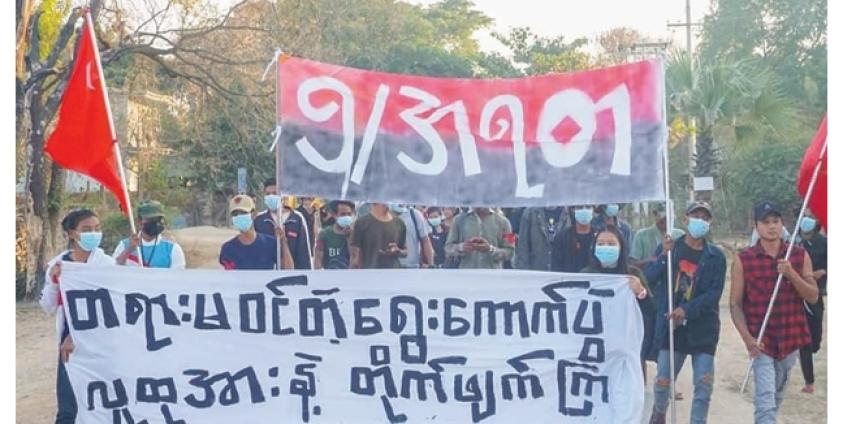It is more important for resistance forces to improve political and military alliances with each other instead of concentrating their efforts on preventing the junta elections, provisionally planned for 2025 or 2026, according to the Burma News International-Myanmar Peace Monitor (BNI-MPM).
The comments were made by Daw Tin Tin Nyo, the Managing Director of BNI-MPM, during the 28 February 2025 online launch to the media of a special report by BNI-MPM titled ‘The Feasibility of Holding a New Election and the Trajectory of the Revolution’.
The report points out that every six months since the coup the junta has repeatedly extended its six-month states of emergency whilst also frantically trying to organise elections that it believes will offer it a potential political exit from the conflict.
The junta has provisionally planned to hold elections in either 2025 or 2026.
But, in 2025 the junta will be unable to hold elections in the majority of townships. Due to escalating military conflicts it will likely only be able to hold elections in about 100 of Myanmar’s 330 townships, according to the BNI-MPM report.
Daw Tin Tin Nyo, said: “It is highly unlikely, though not impossible, that the junta will be able to hold a successful election in 2025. At this point, we must question whether preventing the junta from holding an election is truly important. In fact, it is more crucial for our resistance forces to maintain their current path, with a unified political stance and a balanced military approach.
According to the BNI-MPM report with anti-junta organisations strongly opposed to the junta’s elections, such as ethnic armed organisations (EAOs) and resistance forces, holding approximately 200 townships it is highly unlikely that the junta will be able to implement credible election plans.
Daw Tin Tin Nyo said: “We must also consider potential compromises in areas where there is currently no military conflict. The junta may use all possible means to hold the election in these areas and then transfer power to the winning parties, which could either garner international support or recognition—or may not. The election the junta is planning is unilaterally devised, so even if it is held, the war will continue. That’s why our focus should remain on continuing to pursue our revolutionary goal. Only when we are certain that this path is no longer viable should we consider other options.”
The report also pointed out that if resistance forces carry out campaigns or activities to disrupt the elections in areas firmly held by the junta they must ensure that the local populations remain secure and safe.
BNI-MPM said that the purpose of this new report is to explore the possibilities of a junta-held elections and look at the possible outcomes of such elections.
It analyses various scenarios under which elections may take place and researched various factors that might affect the election. These included research into constituencies, the stance of resistance forces toward the election, the views of political parties planning to participate in the elections and international opinions.
BNI, an umbrella organisation for 15 different ethnic media outlets launched the Myanmar Peace Monitor (MPM) in 2013. It has periodically published special reports on Myanmar's political shifts and conflict situations.
The MPM also publishes the annual ‘Deciphering Myanmar's Peace Process - A Reference Guide’, which documents the evolving situation of Myanmar's peace process.
Currently, the BNI-MPM report, ‘The Feasibility of Holding a New Election and the Trajectory of the Revolution’ is only available in Burmese, though an English version will soon be available.
The Burmese language version of the report is available here: https://mmpeacemonitor.org/download/the-feasibility-of-holding-a-new-election-and-the-trajectory-of-the-revolution-mmr/








